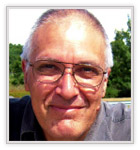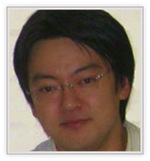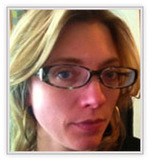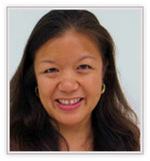4-2 Specialist or Generalist, the translator’s dilemma?
ジェルミ・
|
長尾龍介JAT会員
|
森井サイラJAT会員
|
リサ・ヒューJAT会員
|
 |
 |
 |
 |
報告者●ジェームス・シングルトン(フリーランス翻訳者)
Lively and entertaining, a panel discussion featuring veteran translators Jeremy Angel, Ryosuke Nagao, Syra Morii and Lisa Hew provided personal and professional experience for those considering whether to be a generalist or to specialize.
As each panelist introduced themselves and shared experiences from their careers, the abundance of commonalities made it apparent that neither a pure generalist nor specialist was among them. Angel and Morii shared how even without an early grounding in a specific field it is possible to specialize in areas of interest and to develop skills and knowledge that clients across multiple fields will find attractive. Angel half-jokingly said his experience has meant that he now considers himself to be the, “ultimate specialist,” whereas for Morii, building up her skill set often means clients will now search her out, a goal she lightheartedly refers to as getting designated for work, “like a hostess,” (shimeisareru).
Nagao and Hew spoke to how specialists must be careful not to bill themselves as capable of handling everything in their field, nor to over-specialize to the point they are no longer marketable. For Nagao, who focuses largely on video game translation, this has meant understanding which genres best suit his skills and experience, while Hew, who says she went wrong in the beginning as a legal translator by focusing too heavily on one area, has found success in part by keeping her specialization broad enough to allow for a variety of translation work, although in a specialized area.
Opinions and experiences also converged on the topic of how to develop a specialty. Both Morii and Hew emphasized focusing on what interests you and to avoid the siren's call of lucrative rates in fields which do not pique your interest, or as Hew succinctly put it, "if you're bored then it's not your specialization." Nagao's early love of video games illustrated how hobbies and interest can develop into a specialization, while Angel and others pointed out that by generalizing early on, translators can discover fields which interest them. Regardless of how one comes to a specialization, though, the entire panel nodded agreement to Morii’s comment that developing any specialty requires hard work and dedication.
Panelists also agreed that self-marketing is essential. Hew explained how in her field she needs to let clients know what she does do, and conversely, does not do, while Morii explained that letting clients know what language services she provides beyond translating creates additional opportunities for work. Nagao pointed out how being clear as to what he is good at allows clients to choose jobs suited to him, while Angel warned against lowering rates and cited the need to educate clients on the quality of services they are receiving.
Some pros of generalizing were that a wide variety of content allows for new experiences and broadens one’s mind, and that pay can be quite lucrative. Some cons were dealing with poor writing of source text and the time involved in researching new fields. For the specialist, higher rates and the ability to focus on areas of interest were noted as positives, while dealing with difficult client demands and fierce competition were some negatives.
The Q&A portion of the session saw panelists fielding questions from both translators and clients alike on, among other topics, how to find jobs and clients, knowing if a translator has proper experience, ending work relationships and the role of professional organizations such as JTF and JAT.
For those in the audience unsure of whether to specialize or not, the panelists provided abundant food for thought, but with all the similarities between the two camps, in the end what a translator chooses comes down to what Hew summed up as, "a business decision."
講演資料のダウンロードはこちら
*ダウンロードには、参加者のみに別途メールでお送りしておりますパスワードが必要になります。
